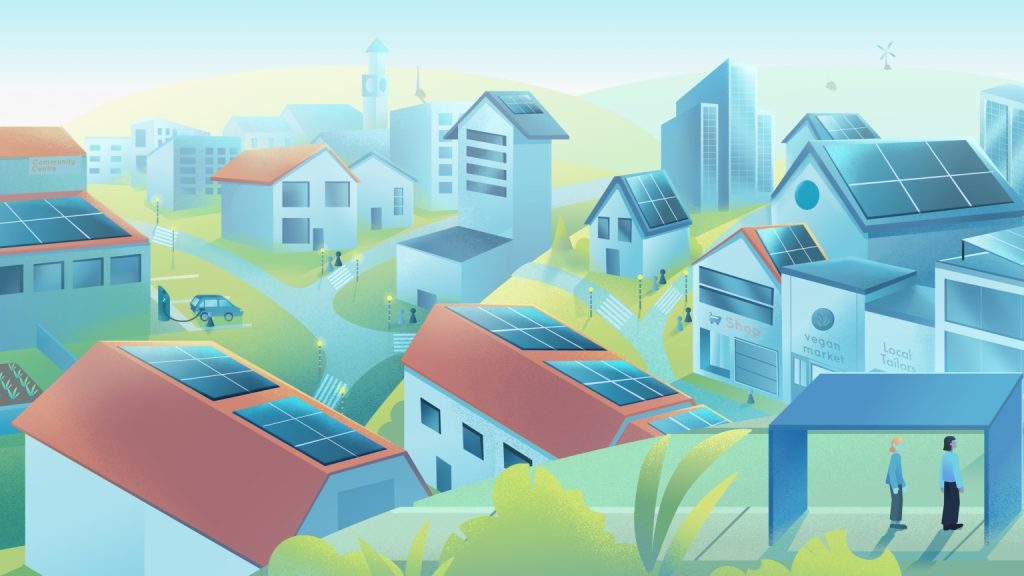
Underpinning CAST’s research is a question of immense significance: how can we transform society in order to live better and address climate change?
While there is now strong international momentum around tackling the climate and nature crisis, critical targets will be missed without fundamental changes to the way we live.
CAST goes beyond disciplinary and theoretical boundaries in order to better understand how to transform lifestyles, social structures and systems of governance for a sustainable, low-carbon future.
Explore the core principles and research themes that guide our work below.
Four Research Themes
Our research programme is structured around four Themes that reflect the ingredients necessary to achieve transformational change.
- Theme 1: Visioning – Creating inspiring, feasible and actionable visions of the future
- Theme 2: Learning – Learning lessons from past and current societal shifts
- Theme 3: Trialling – Testing different models of social change in a range of contexts and scales
- Theme 4: Engaging – Embedding change in the real world through communication and engagement
Core principles
1) People as agents of change
We recognise that people must be at the heart of climate solutions. Rapid transformations to a more sustainable society can only be achieved with the support and involvement of people, in all their diversity.
We recognise that people can act directly to reduce their own emissions (e.g. by driving less), but can also shape wider structural change (e.g. by changing organisational practices and policies).
Our research seeks to understand how people can participate in societal transformations in their multiple roles as citizens, consumers, parents, employees, business leaders, policymakers, investors and role models, amongst others.
It is crucial that we understand people’s unique circumstances, in their varying roles as individuals, groups and communities, listen to their views and concerns, and work closely with them to test out bold visions of a better society.
2) Impactful behaviours
We focus on particularly challenging behaviours – those that have substantial climate impacts but are resistant to change. These include food and diet; consumption and waste; transport and mobility; and heating and cooling.
We have recently expanded our research into new areas with exciting opportunities to engage people around topics including sport, water, health, education and adapting to climate impacts.
3) Values and co-benefits
We know that climate action needs to be aligned with things people already care about, like health, nature, community and fairness. It also needs to deliver practical benefits for businesses and organisations, including economic stability. Luckily, our research shows that all of this is possible.
CAST’s research seeks to identify what actions are needed to build a sustainable future in which we have brought down global temperatures while delivering co-benefits like cleaner air, warmer homes and lower bills. We also help our stakeholders design and communicate climate interventions in ways that speak to these wider benefits.
In line with the United Nation’s Sustainable Development Goals, we firmly believe that addressing climate change is not only about reducing emissions, but also improving our society and environment more broadly.
4) Varying scales and rates of change
Societal transformations aren’t just about individual behaviour change. We know that people intersect with social and political structures in many ways and have the power to drive change in their communities, organisations and cities, as well as nationally and globally.
Change also occurs at different moments and speeds, and CAST aims to identify and trial how these provide opportunities for emissions reduction.
5) Two-way communication and engagement
Our role as researchers is not only to understand. We are committed to working collaboratively with stakeholders and the public to design, conduct and translate our research into meaningful impact.
Our research is highly applied and driven by real-world challenges; we are always thinking about how our insights can deliver tangible benefits.
Interested in partnering with CAST on a specific project? Discover how we can support you, or get in touch with us directly via our Contact Form to find out more about how we can work together.
